Primary, secondary education in France for international students
This content was developed with active participation of Lucy Heller.
In the process of preparing the material, we referenced the following sources:
- https://borgenproject.org/education-in-france/
- https://www.expatarrivals.com/europe/france/paris/international-schools-paris.
-
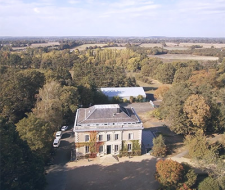 from 25800.00 € / yearApply with documents
from 25800.00 € / yearApply with documents -
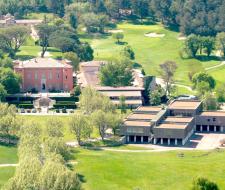 Students graduating the school are accepted in the first-choice universities 90% of times
Students graduating the school are accepted in the first-choice universities 90% of times FranceProvenceCurrently watching: 7from 9900.00 € / yearApply with documents
FranceProvenceCurrently watching: 7from 9900.00 € / yearApply with documents -
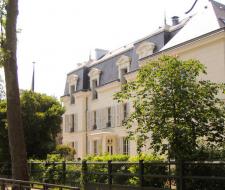 One of the best bilingual schools in France
One of the best bilingual schools in France FranceParisCurrently watching: 6from 29314.00 € / yearApply with documents
FranceParisCurrently watching: 6from 29314.00 € / yearApply with documents -
 School offers both French Baccalaureate and GCSE
School offers both French Baccalaureate and GCSE FranceToursCurrently watching: 7from 28000.00 € / yearApply with documents
FranceToursCurrently watching: 7from 28000.00 € / yearApply with documents -
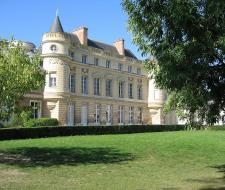 The best boarding school in France offering American High School Diploma
The best boarding school in France offering American High School Diploma FranceParisCurrently watching: 1from 19200.00 € / yearApply with documents
FranceParisCurrently watching: 1from 19200.00 € / yearApply with documents -
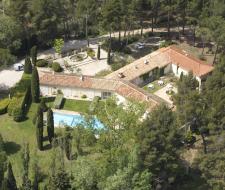 from 27900.00 € / yearApply with documents
from 27900.00 € / yearApply with documents -
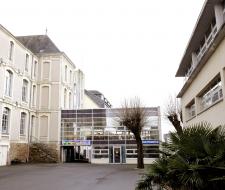 from 6550.00 € / semesterApply with documents
from 6550.00 € / semesterApply with documents -
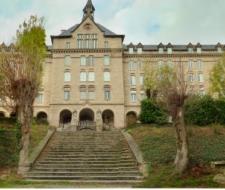 from 6000.00 € / semesterApply with documents
from 6000.00 € / semesterApply with documents -
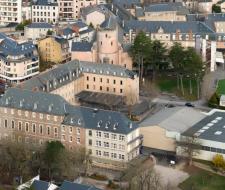 from 7090.00 € / semesterApply with documents
from 7090.00 € / semesterApply with documents -
 from 7000.00 € / semesterApply with documents
from 7000.00 € / semesterApply with documents
Alternative destinations
Education information
Nowadays, France is really popular destination for educational tourism among international students. Actually, French secondary schools provide very attractive price. In addition, European quality of best schools is recognized all over the world. SMAPSE offers you 13 best schools to obtain high-quality and advanced seconadry education. It's worth noting that three-year study in French lycée guarantees foreign students entering prestigious university.
Don't hesitate to contact SMAPSE experts at any time as they are always ready to help you and answer all questions.
Introduction to Schools in France
Primary education in France begins at age six, where young learners focus on standard subjects like reading, writing, and basic mathematics. This level carries a moderate academic workload. The next stage is middle school, known as "collège," which caters to students aged 11 to 15 and consists of a mandatory four-year program.
Middle Schools in France: Transition to Lyceum
After completing collège, students move on to the "lycée," a transitional stage between middle school and university. Lycées offer specialized courses tailored to students' chosen academic or vocational paths. At the age of 13-14, students start making critical decisions about their future careers and the specialization they will pursue in lycée. French secondary schools introduce physics and chemistry at age 13, and by age 14, students have the option to study Latin. Multiple foreign languages are also on offer. In the final year of collège, students focus on specialized subjects and sit exams to earn the "diplôme national du brevet," which helps determine their educational pathway.
Types of Lycées: An Overview
There are three main types of lycées in France:
-
General Lycées (3 years)
-
Technological Lycées (3 years)
-
Professional Lycées (2 years)
Both general and technological lycées prepare students for higher education, offering specializations in fields like design, astronautics, and aeronautics. In contrast, professional lycées provide certificates that enable students to work in the service sector.


What would you say is the most important when choosing a school?
This is the quality of support and work of the management, the opportunity to study at IB, the prestige of the school and the percentage of successful completion of the diploma stage of IB, recommendations for further universities. It is worth considering the national "recruitment" of campus students, opportunities for extracurricular development and activities, the availability of medical services and consultations, opportunities for language immersion. Is education at the chosen school based on the values you share? Is the school a close-knit community? Is academic support good?
Schools in France: Language Options and Standards
French schools offer instruction in either French or English. All certificates granted by French secondary schools and lycées meet high international standards.
List of 5 best Schools in France
Rance is home to a variety of prestigious schools, each excelling in different educational paradigms, from academics and arts to sciences and technology. It's important to note that the concept of "best" can be subjective, depending on the specific needs and aspirations of the student. However, here are five schools in France that are often cited for their high standards, strong curricula, and exceptional opportunities for students.
The Lycée Louis-le-Grand, located in the heart of Paris, is one of the most prestigious secondary schools in France. With roots dating back to the 16th century, this public secondary school has a rich history and has educated numerous notable alumni, including René Descartes and several French presidents. The institution is well-known for its rigorous academic curriculum, which focuses on sciences, humanities, and languages. Its students regularly score top marks in the national exams and many go on to attend elite universities.
École Normale Supérieure (ENS) is a higher education institution that stands out in France for its focus on research and higher learning. Located in Paris, ENS offers an environment where students are expected to engage in scholarly pursuits actively. While technically not a "school" in the conventional sense as it offers higher education, it is nevertheless a critical institution for those aiming for academic excellence. ENS is particularly renowned for producing a large number of Fields Medalists and Nobel Laureates relative to its size.
Lycée Henri-IV is another elite public secondary school and preparatory class (classes préparatoires) in Paris. Like Lycée Louis-le-Grand, it has a long history and has been the educational home to numerous important French figures, including Paul Valéry and André Gide. Lycée Henri-IV is known for its demanding curriculum, particularly in the humanities and social sciences. The school aims to prepare its students for the challenges of the top French Grandes Écoles and universities.
The American School of Paris is one of the top international schools in France. Located in the suburb of Saint-Cloud, just outside of Paris, this school offers an American curriculum from kindergarten to 12th grade. Because of its international perspective, students from various cultural backgrounds come here to study, making it a melting pot of global cultures. The school is fully accredited by the Middle States Association of Colleges and Schools and offers both the American high school diploma and the International Baccalaureate (IB) diploma.
International School of Nice (ISN) is another excellent choice for families looking for an English-language education on the French Riviera. The school serves students from preschool through to the 12th grade and offers the International Baccalaureate (IB) program. ISN has a diverse student body representing over 40 nationalities and provides a comprehensive education that includes a wide range of extracurricular activities.
While these schools represent just a small fraction of the high-quality educational institutions available in France, they are often considered among the best due to their rigorous academic programs, diverse offerings, and histories of producing successful alumni.
How to Apply to Top Schools in France as an International Student
For a higher chance of admission, students should have a strong academic foundation, preferably obtained through programs like the International Baccalaureate IB or French Baccalaureate, depending on the language of instruction. Language proficiency certificates are also advisable for applicants.
For personalized assistance, don't hesitate to reach out to SMAPSE experts who are readily available to answer all your questions.
Schools in France Ranking: Investing in Your Future
School rankings can be an essential factor in choosing the right institution, and France has numerous prestigious schools that are well-regarded internationally. Investing in a quality French education will not only open doors academically but also offer a culturally enriching experience.

Cost and Fees to Schools in France
Cost and fee structure for schools in France varies considerably based on the type of institution—public, private, or international—and the level of education. Public schools in France are largely funded by the state and are generally free, with minor exceptions for some administrative costs and extra-curricular activities. Parents might have to cover the cost of school supplies, extracurricular activities, and sometimes lunch, but tuition itself is not a concern in public primary and secondary schools. In higher education, however, university fees do exist, though they are relatively modest when compared to countries like the United States. As of my last update in September 2021, the annual tuition fees for a French public university ranged from about €170 for an undergraduate program to approximately €380 for a master's program, with additional fees for more specialized courses.
Private schools in France, on the other hand, have a different fee structure. Tuition fees can range from a few thousand euros per year to much more, especially for elite private institutions. Unlike public schools, private schools are not state-funded and therefore rely on tuition and sometimes donations for their operating costs. Fees at private institutions can include not just the tuition, but also various administrative costs, costs for extracurricular activities, and sometimes meal plans or uniforms. It's important to read the fine print and fully understand what is and isn't covered by tuition fees when considering private education in France.
International schools, which often follow a different curriculum such as the British, American, or International Baccalaureate systems, tend to be the most expensive option. These schools are primarily designed for expatriate families and often have tuition costs that can rival or even exceed private schools in the United States or the United Kingdom. Fees can go well into the tens of thousands of euros per year and usually do not include additional costs such as uniforms, school trips, or extracurricular activities.
Financial aid and scholarships are available to varying extents depending on the institution and the family's financial situation. For public universities, there are often subsidized rates for low-income families and numerous scholarships available based on both need and merit. Private and international schools may offer financial aid or scholarship options, but these are generally more limited. Overall, the cost and fee landscape for schools in France is diverse, requiring families to carefully consider their options based on both educational goals and financial capability.
Learning programs-summary information
| Name | Meaning | Equivalent | Min. age | Duration, years |
Next stage | Cost |
|---|---|---|---|---|---|---|
| GCSE | General certificate of secondary education | secondary education (non-accomplished) | 14 | 1–2 | A-Levels | 15,000 USD+ |
| A-Levels | Advanced level | secondary education (accomplished) | 16 | 2 | University | 15,000 USD+ |
| BTEC | Business and Technology Education Board | secondary special education | 14 | 2–3 | University/ work | 15,000 USD+ |
| Oxbridge Preparation | Preparing for Oxford and Cambridge | secondary education (accomplished) | 17 | 1 | University | 15,000 USD+ |
| International Baccalaureate | International baccalaureate | secondary education (accomplished) | 16 | 2 | University | 18,000 USD+ |
| Foundation/ Pathway Year | Preparatory year | admission to the 1st year of university | 17 | 1 | University | 14,000 USD+ |
| NCUK | The Northern consortium | 2 year university | 17,5 | 1 | 2 year University of NCUK | 13,000 USD+ |
| Special Preparation (Medics/Math/Business) | Specialized training | - | 14 | optional | optional | 4,000 USD+ |
| Academic English | Academic English | Language school | 8 + | 6–12 months | School or University | 8,000 USD+ |
Advantages and disadvantages of English schools
| Advantages | Disadvantages |
|---|---|
| The opportunity to enter the best universities in England, USA, Canada, Switzerland, Europe, the world | Expensive |
| High quality of education and academic standards | Strong workload |
| Perfect English after graduation | The need to change the social environment; it takes time to adapt |
| Useful contacts | The difficulty of choosing the most suitable school for the child, requires a qualified specialist |
Top 21 boarding colleges in England 2024
| 1 | Cardiff Sixth Form College |
| 2 | National Mathematics and Science College |
| 3 | Abbey College Cambridge |
| 4 | d'Overbroeck's College |
| 5 | MPW London |
| 6 | CATS Cambridge |
| 7 | Kensington Park |
| 8 | DLD London |
| 9 | King's College St Michael’s |
| 10 | Bellerbys Cambridge |
| 11 | Chelsea Independent College |
| 12 | MPW Cambridge |
| 13 | Bellerbys Brighton |
| 14 | CATS London |
| 15 | St Clare's Oxford |
| 16 | Bishopstrow College |
| 17 | CATS Canterbury |
| 18 | Bellerbys London |
| 19 | Ealing Independent College |
| 20 | Cambridge Tutors College |
| 21 | Abbey Manchester |



